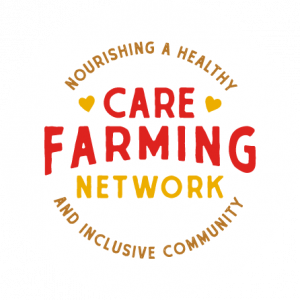In this webinar, member care farms discussed the adaptive farm tools and techniques they use to operate neurodiverse-inclusive farms. Neurodiverse participation was encouraged! Presenters (with and without disabilities) shared their top techniques and tools they use in a production farm setting.
Red Wiggler Community Farm (Maryland) is a sustainable Care Farm where people with and without developmental disabilities come together to work, learn, and grow healthy food. Founded in 1996, Red Wiggler now serves over 1,900 community members, has a 120-share CSA program, distributes 50% of organic produce to low-income households through our Farm to Group Home and Farm to Food Bank programs, employs 15 adults with developmental disabilities, and regularly hosts field trips and volunteers. Learn more here.
Little Otter Flower Farm (Virginia) is a small family farm started for son Max, who has Autism. A flower farm fits with the family’s love of being outdoors, their desire to be part of a community, and tasks that match Max’s strengths. Little Otter sells its flowers online and at a local farmers market, and it offers a “Random Act of Kindness” option through which anyone anywhere can purchase flowers as a gift to be locally delivered. Learn more here.
Vertical Harvest (Wyoming) energizes local food systems via hydroponic, vertical, controlled environmental agriculture (CEA) to deliver healthier food and futures. We work with communities to develop underutilized space in urban, underserved neighborhoods, grow “up” on a fraction of the land required by traditional agriculture, while using 85% less water to deliver our produce at peak flavor and nutrition, year-round. We use an inclusive employment model currently focused on individuals with physical and/or intellectual disabilities. Learn more here.
